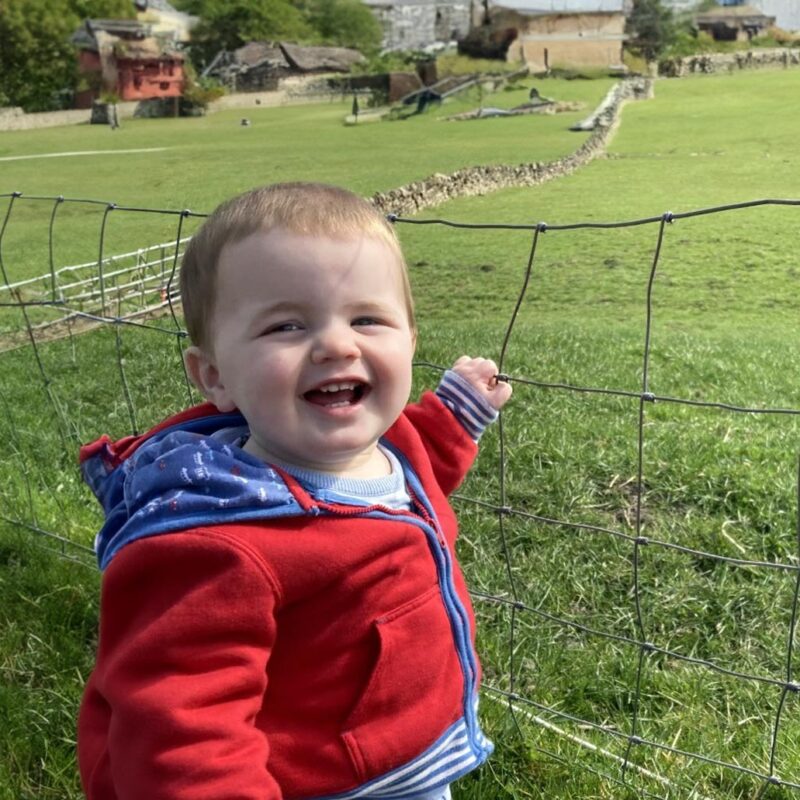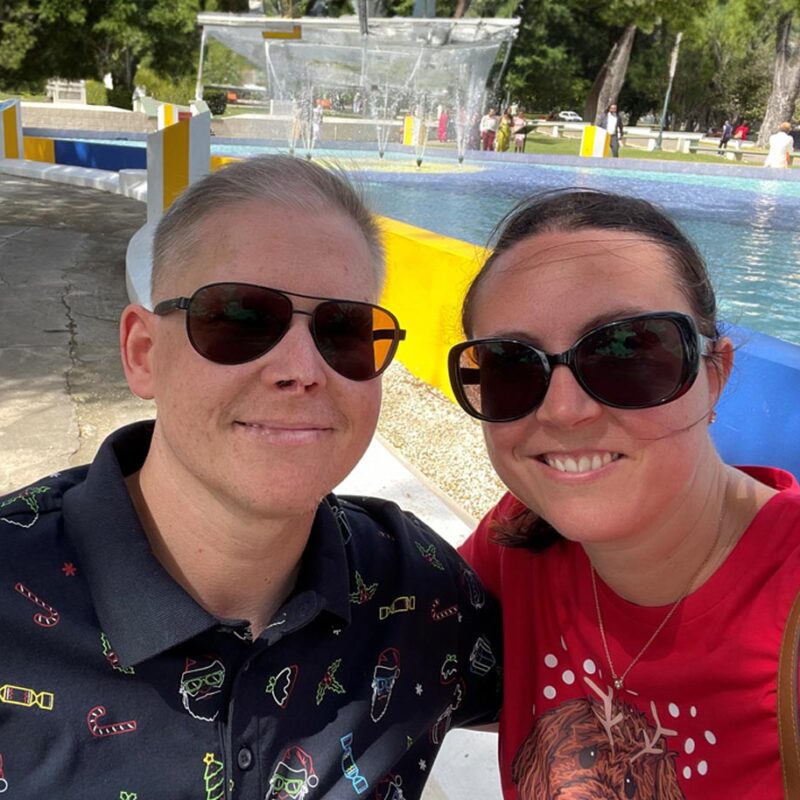A mum-of-two who developed sepsis after having an elective C-section went from being fit and healthy to being in and out of hospital with numerous infections for a year.
Teacher Lizzie wanted to share her story to raise awareness about the symptoms of sepsis.
When Lizzie gave birth to her second son, she had an elective C-section. Unfortunately, the procedure “went quite badly wrong.” She explained: “They had to fight quite hard to stem some bleeding, and as part of that, I was given a womb drain. And because they’d had to fight quite hard to save my life, I was very, very sore…but I’d never had a C-section before…I knew that you can have the kind of contractions, putting everything back together after you’ve given birth.”
However, four weeks later, the pain became “quite severe” to the point where she could “barely walk.” Concerned, Lizzie contacted the hospital’s maternity department, and they asked her to come in for a check-up.
Upon arrival, the medical team requested a urine sample, but Lizzie realised she hadn’t urinated all day. She didn’t think too much of it, and they also took her temperature and ran a blood test.
However, a mix-up with her blood test led doctors to simply diagnose her with a urine infection.
She recalled: “The person who was reviewing me, I think, saw a very tired, sort of stressed out new mum…looking back now, I want to scream at myself, because I knew that the pain was not a urine infection.”
“It was incredibly severe pain and I think if I’d have known the symptoms of sepsis, I would have been more confident…but unfortunately I was a bit delirious.”
That night having been sent home, Lizzie experienced “one of the worst nights” of her life, and it became “very clear” that she was seriously unwell. She developed a fever, her body shook uncontrollably, but she made it through the night.
The next morning, she returned to the hospital, where doctors discovered she had sepsis, caused by an infection between her bladder and uterus due to the C-section.
Lizzie’s memory of the events that followed is hazy, and she now realises she also suffered from PTSD. She does, however, recall being admitted to the hospital with her newborn, feeling like doctors were “trying to avoid using the word sepsis.” It wasn’t until she later received her medical records that she confirmed she “definitely had” sepsis.
At the time, Lizzie knew very little about sepsis, believing it to be “incredibly rare”, and she was unaware of its symptoms or the risks it posed after surgery.
She spent around eight days in the hospital, receiving antibiotics that took effect at the “last possible minute,” narrowly avoiding the need for surgery. Lizzie said: “I was very unwell for quite a few days with no kind of prospect of it improving, which psychologically was very difficult when you’ve got a tiny four week old baby and another son at home.”
During her stay, Lizzie struggled to breastfeed her newborn as her son pressed against the infected area when she fed him, and her body was connected to numerous IV drips.
Despite the pain, she was encouraged to continue breastfeeding to reduce her risk of mastitis.
“I think I put a lot of pressure on myself to keep going with that,” she admitted. “I did find it incredibly tough, if I’m honest, and I did start to really dread feeding my baby, and it’s something that I’ve really, really struggled with and then it was becoming apparent in my recovery that I was still quite weak. And at that point, it was suggested that perhaps I changed a bit to combination feeding to sort of give my body that last bit of strength to recover.”
Throughout her ordeal, Lizzie’s partner stood by her side, though he was “very traumatised” after nearly losing her.
Recovery also proved challenging for Lizzie, especially with a newborn and a four-year-old at home .She said: “I felt I put a lot of pressure on myself to get back to being fit and healthy and a good mum to them. And looking back now, I should have taken it much slower.”
“I couldn’t walk to the end of my road for a good month after I left hospital.”
Two months after being discharged, Lizzie was readmitted with what she believed was a strep A infection, likely contracted from one of her children. Her body struggled to cope, her heart rate soared to 256 beats per minute, and just a few months later, she also developed shingles.
Lizzie returned to work ten months after giving birth, with adjustments in place to help her transition back. Before sepsis, she had been fit and healthy, rarely falling ill. Now, she was on antibiotics on and off for nearly a year and admitted to having “definitely underestimated the long-term physical impact.”
Her experience also “dented” her trust in the medical profession and left her feeling anxious.
Lizzie said: “So if my child was sat on a chair, I’d be petrified they would fall off the chair and smack open their head, and I’d have all these visualisations of all these awful things happening.”
To manage these anxieties, Lizzie sought cognitive behavioural therapy (CBT) through the NHS and Eye Movement Desensitization and Reprocessing (EMDR), which helped her process the distressing memories.
Through researching sepsis, Lizzie discovered the UK Sepsis Trust, which provided her with valuable information on symptoms and personal stories. Inspired by her experience, she decided to share her own story and raise awareness.
Along with her best friend and husband, she is now preparing to take on the Yorkshire Three Peaks Challenge in under 12 hours, in aid of the UK Sepsis Trust. She said: “So I felt very powerless through everything that I went through and just not being heard. So I decided I need to do something to make me feel strong and powerful and get the message out about sepsis.”
She added: “I’ve been incredibly overwhelmed by the support, and not just kind of through donations, but through lovely messages. It’s not just something that affects one person, when someone’s that unwell, it affects all of your friends, all of your family, and I think it’s allowed me to see the impact that it’s had on everyone, and how kind of proud everyone is that I’m now raising awareness.”
Reflecting on her journey, Lizzie said: “I really love the question that you (the UK Sepsis Trust) encourage people to ask – ‘Could it be sepsis?’ Because that question, it might seem so silly, but I really look back now and think it’s a medical miracle I survived that night at home and just asking that one question could save someone’s life. So that’s the big, big message that I’m trying to spread with this event.”
Get Sepsis Savvy today





